Queenstown, New Zealand is a hot spot for travelers all around the world looking for a bit of adventure. The nightlife is considerate for a mountain town far from any large urban area; there are many bars and venues to choose from, some of which stay open until 4 am every night of the week. The outdoor and adventure activities are abundant – you have your choice of mountain, lake, canyon or river, all within minutes or under an hour from the city center. There are always new people to meet and friends to make in this very transient, tourist-drawing and foreign transplant town, making it an enticing place to live for many. With so many people coming in and out of the town, how does a person new to the area find housing in Queenstown?
Given its popularity, it shouldn’t come as a surprise that there is a serious housing crisis in Queenstown. Much like other sought-after tourist destinations, many homes here have been turned into AirBnBs or vacation rentals, thus leaving the locals (especially foreign workers, like myself and colleagues) desperate to find a place to live amidst a serious long-term housing shortage.
As unfortunate as this reality is, this town is adored by many because of its incredible scenery and plethora of activities on offer. Below are some tips that new and old residents alike do to find housing in Queenstown.
Tip #1: Be prepared to live in alternative accommodation when you arrive.
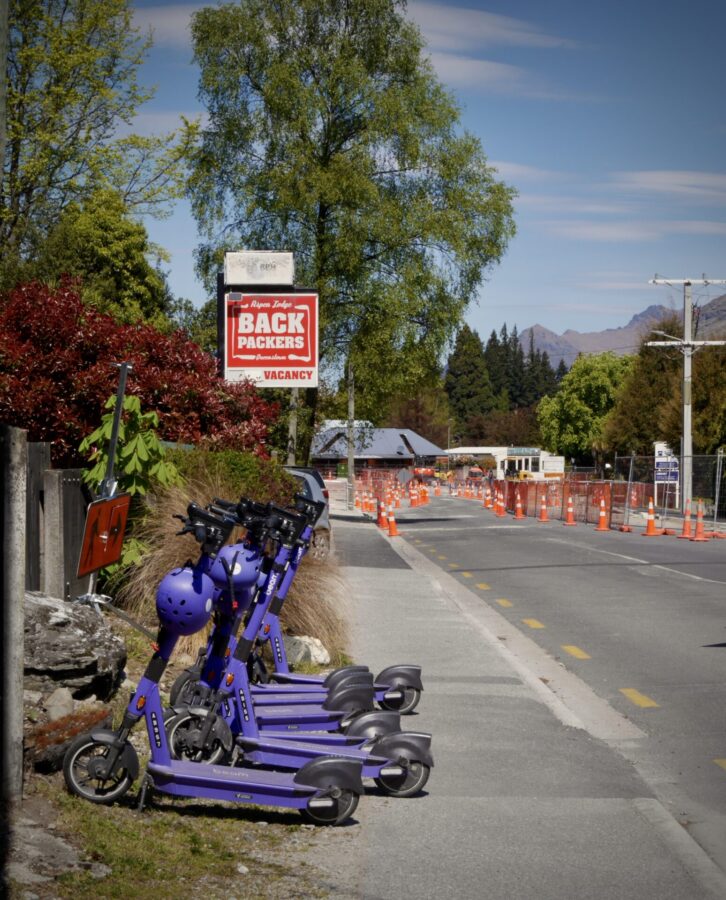
Chances are, you won’t be able to find an apartment right when you get here. The other options are staying in a hostel or camping (either in a tent or a campervan).
Option 1: Hostel
Living in a hostel is a popular option for folks trying to find housing in Queenstown. It will be a little easier to manage, and you’ll meet more people, but will cost more over the long term.
Long-term Hostel Costs:
A dorm bed at most hostels in Queenstown average about $50/night, or $350/week. Some hostels do discounts for long term stays, but it wouldn’t be much cheaper than that. Depending on how long you stay in a hostel, you could be spending around $1400 a month on a bunk bed in a dorm room, which is ridiculous in my opinion.
Most people who come here to work end up getting jobs in the service industry, and the pay is quite low for the cost of living, so $1400 a month could end up being about half of your monthly income depending on how much you get paid an hour ($22-26 an hour is typical as an entry wage). I know several people that did live or have been living in a hostel for months, so that money adds up if an apartment doesn’t become available right away.
Do note also that arriving mid-season or at a very busy time of the year will make hostel stays harder to find (or more expensive). It’s best to arrive in the shoulder season (spring and fall) to get a spot.
Option 2: Camping (Tent or Van)
Tent Camping
There are a few campgrounds in the area, some walking distance from downtown Queenstown and others that require a car. This option is only viable in the summertime, and while campsites in town tend to be expensive, I know a group of 10 who stayed at one site together for a much cheaper rate between them. This option allowed them to save money when they first moved here and gave them access to a shower and cooking facilities at the campground. My personal opinion is that if it’s just one or a few people, the rate is too much in town to be worth the money ($30/per person per night). However, if there is a large group and they offer a discounted rate, this could be worth it in the warmer months.
Campervan
Another option is buying a converted campervan and living in that. While this option costs more money upfront and requires some compromises in terms of living space, it ends up being cheaper over the long run (especially because when you sell the van at the end of your trip, you will be able to make some or most of the money back that you bought it for).
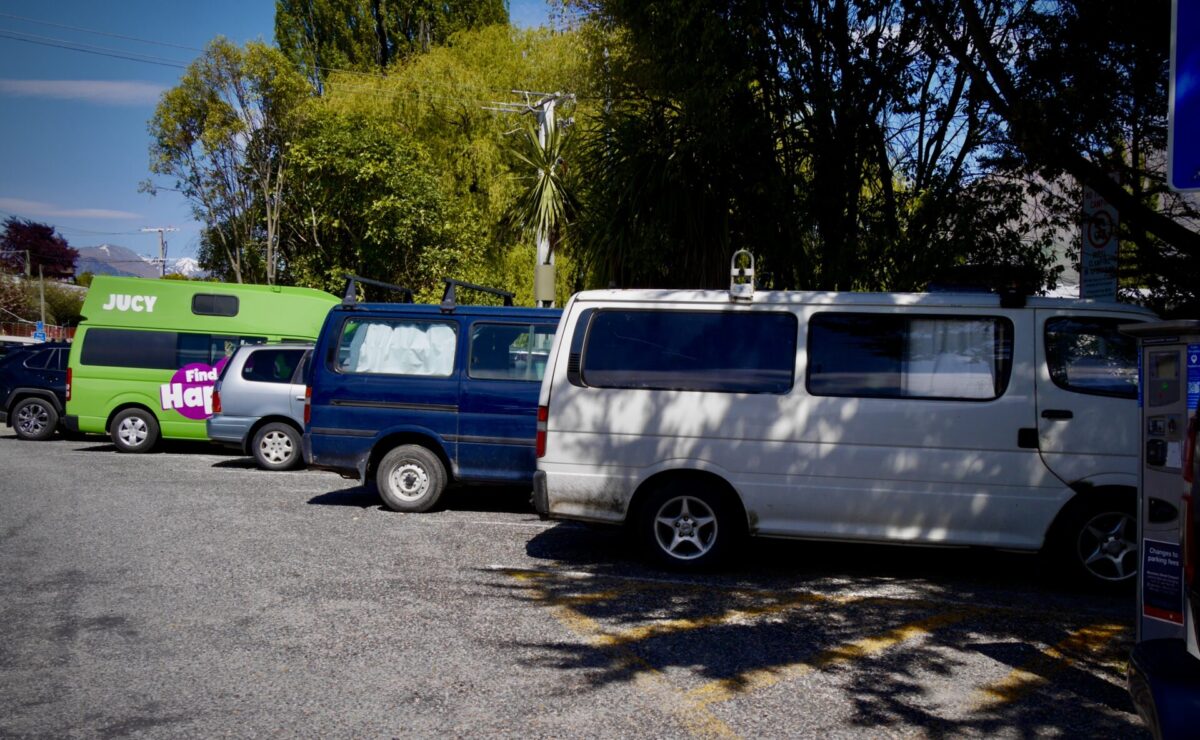
Campervan Costs:
For a comfortable van with important features like a second battery, insulation and a ceiling vent, for example, you might be paying somewhere between $10,000 to $15,000 NZD. There are many cheaper options, but these tend to come with much less space and less features for comfort and long term van living. There are also vans that are newer and/or more kitted out, which cost upwards of $20,000 if you have the budget for it.
When my partner and I first arrived in New Zealand, we decided to go the van route. We spent just under $12,000 NZD for a ’97 high top Toyota Hiace, knowing that we would need to spend additional money on some updates for van comfort (such as a ceiling vent) and some car maintenance due to its age.
Campervan parking:
While this has allowed us to save money and as a couple allowed us to be together in our own space (rather than in a dorm with 8 other people), there were challenges to parking up in Queenstown. They are very very strict about people living in vans here, so it’s important to note that and be prepared to drive out of town every night or potentially risk getting fined $200 for parking in the city limits.
Alternatively, you could pay for a campground, but the ones in town average about $30/person per night, so it’s not really worth it in my opinion. For my partner and I, it would have been $60/night and end up costing about $1800 a month between the two of us, which we felt would be better spent on an actual apartment.
While I don’t regret going the campervan route, I have a lot of mixed feelings about vanlife specifically in Queenstown. While freedom camping in Queenstown can be a challenge, it’s doable if you are stealthy and smart about it. I recommend it if you are determined to save money for future travels, but just be aware of the risks and precautions you’ll need to take.
Tip #2: Get your housing through an employer.
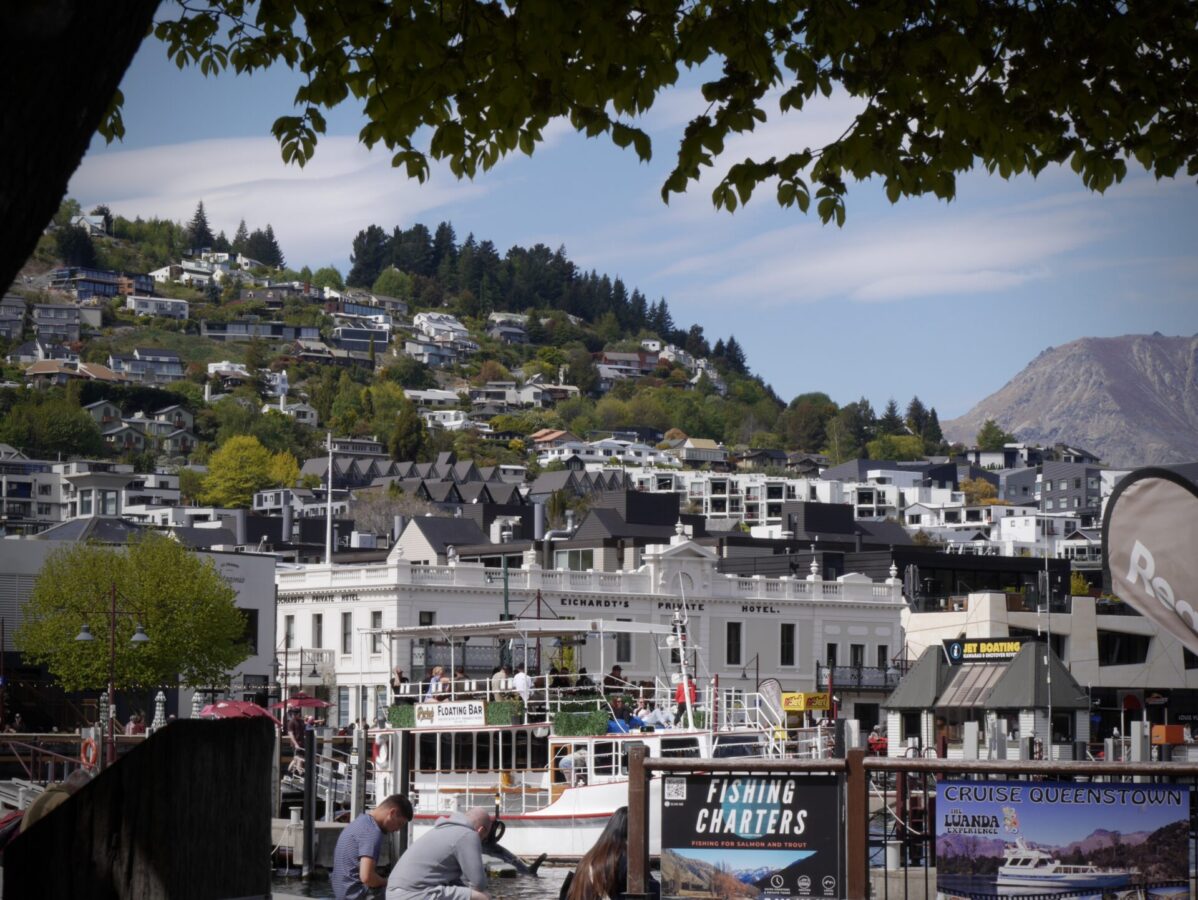
A number of employers in Queenstown own houses or have rental contracts that they then rent out to their employees. If you happen to land a job with one of these companies, this may be your ticket to avoid a hostel stay if you apply before moving to Queenstown, or your permission to leave the hostel or van if you already moved here. Shared accommodation through an employer could be anywhere from $200-350 per week. This usually is reserved for full-time employees and often means sharing your room with someone.
For those employers who don’t have a staff house, they may have spots reserved for some employees in a hostel or they may have a staff housing waitlist. My employer has a waitlist, so anyone who has a room available can let the company know and whoever is next on the list will get priority for the room.
Tip #3: Move here in the off-season.
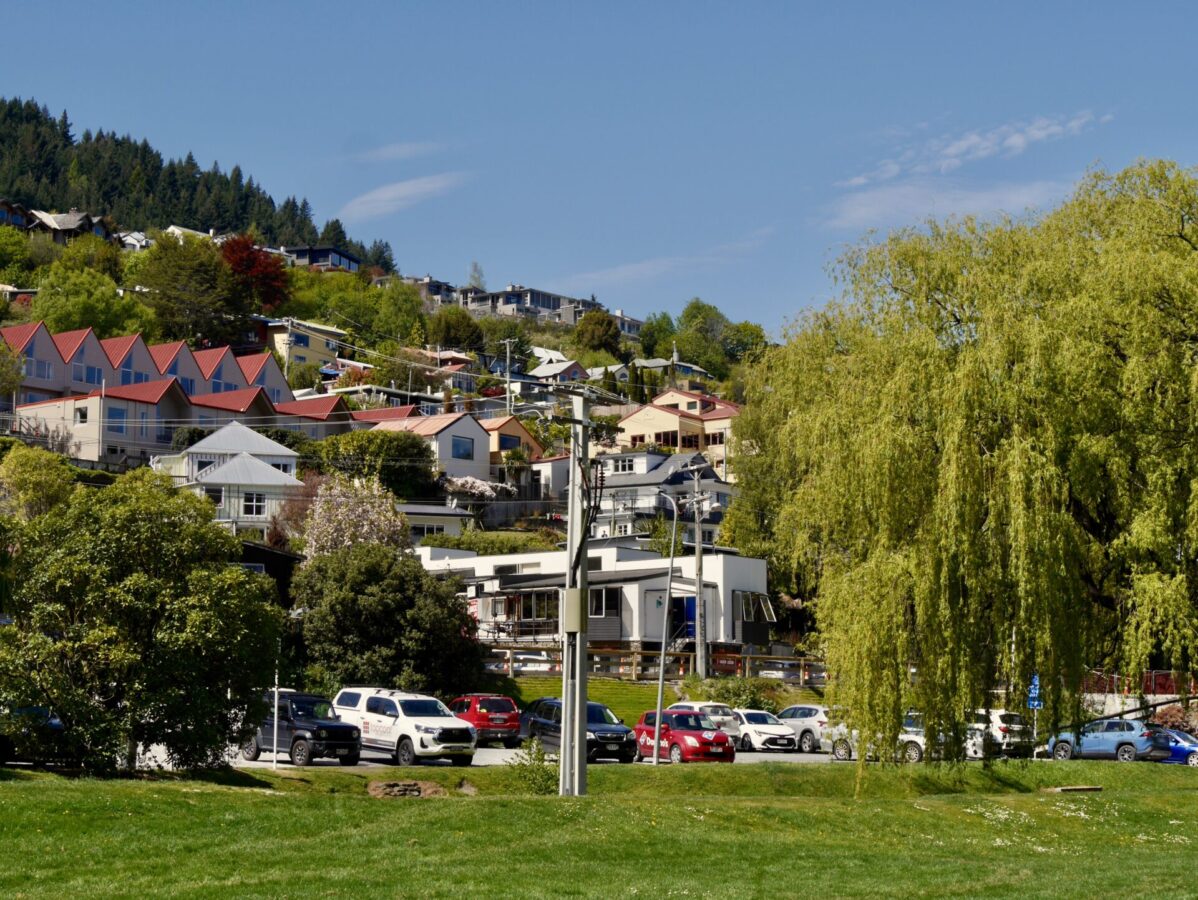
If you move here in the off season (spring or fall) you may have an easier time finding both a job and a place to live. However, many places aren’t fully staffed during these months as there isn’t much need for it and so they give hours to existing employees instead of new hires.
When my partner and I moved here, I was able to start working full time right away after getting hired, but my partner was only offered part time hours for the first few weeks. You may have to accept waiting for work or get part time work at first. However, things happen and there is always some need for workers during the main season; you just might have more options if you come before the big tourist seasons: ski season (June-September) and summer (December-March).
Note: When my partner and I moved to Queenstown at the beginning of June 2023, there were a ton of other travelers here looking for jobs. I’m sure many of them were here for the same reason: the start of the ski season. We both bartend and applied for a dozen or more jobs each when arriving. Some of these companies received hundreds of applications and thus the competition was very high. If you are planning on being in Queenstown for ski season, I highly recommend arriving earlier than June or at least applying online if you can’t be here in person to apply early.
Tip #4: Budget $200-400 a week for rent.
Because Queenstown is a tourist destination and there is a huge demand for housing, many rentals here are overpriced. Let’s hope you find a place closer to the $200 range.
Be wary of any slumlords like this one who took advantage of desperate foreign workers by shoving too many people into an apartment (even the garage!) and overcharging for rent. Know your tenant rights and report landlords who are breaking any housing laws (such as the Healthy Homes Standards).
Tip #5: The more people you know, the easier it will be to find an apartment.
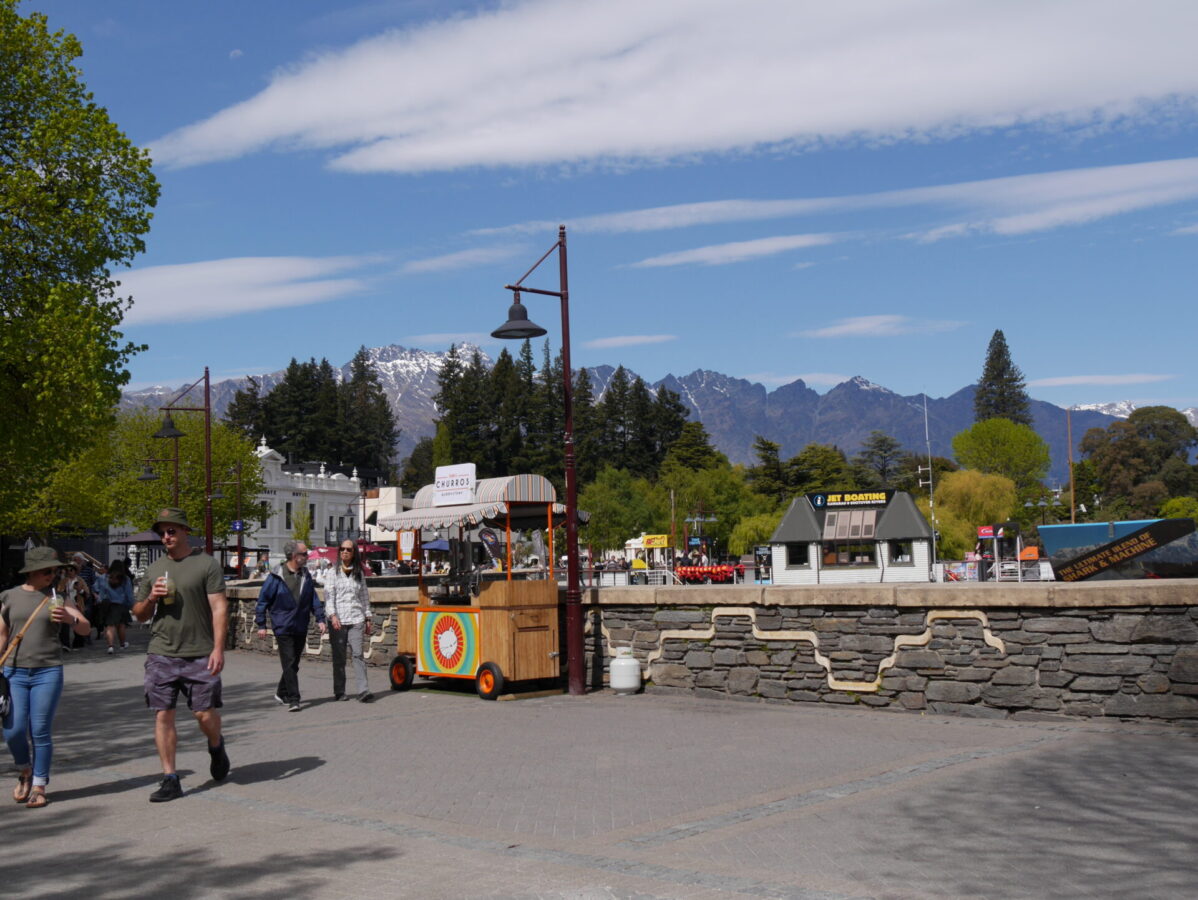
So many people struggle to afford and/or find housing in Queenstown. It’s a very common issue, and so those of us in the community are constantly on the lookout to help a friend in need. If you move here without knowing anyone, your chances of finding an apartment are slim. Once you get a job and start making friends, however, opportunities will open up over time.
For example, while my partner and I have been living in a van for the winter, some rooms at his employer’s staff house are opening up and they offered us one of the rooms. Granted, I will have to start working at his restaurant one day a week, but the affordable price more than justifies this.
Last Thoughts:
I do think that once settled in here it’s a bit easier to find housing in Queenstown through coworkers and friends. However, I’ve also heard stories of long term residents who got kicked out of their apartments and then were forced back into a hostel until they could find another place to live. It’s a toss up.
Like I mentioned before, this town has many qualities that draw so many visitors from around the world. There is a reason that so many foreign workers end up staying to get their residency here! The only question is whether you can make some sacrifices to live here and experience all that Queenstown has to offer.
For more Queenstown tips, check out my guide to getting a job in Queenstown and our initial challenges upon moving here.
Have you tried to find housing in Queenstown? Please comment below to share about your experience.


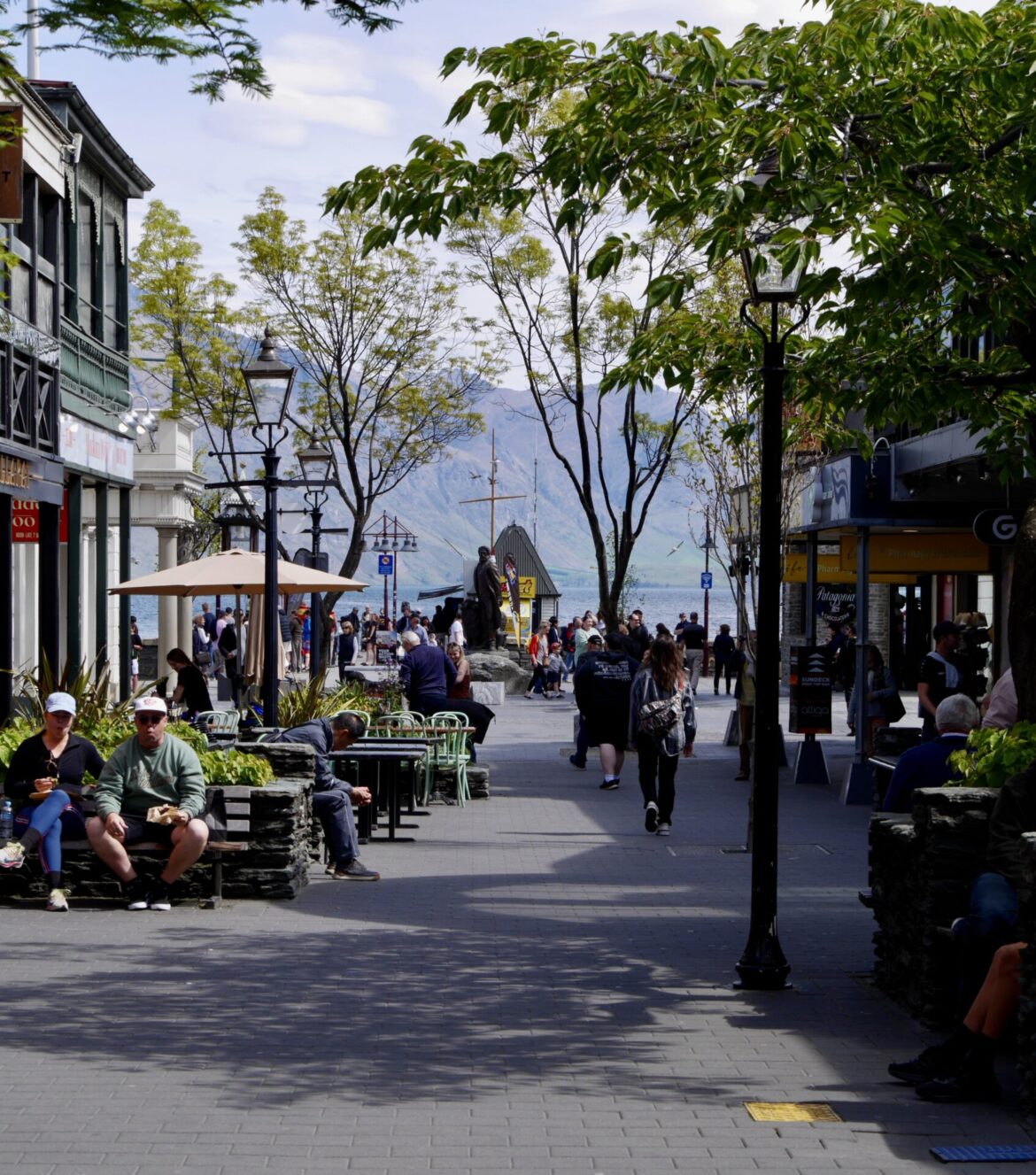
Leave a Reply